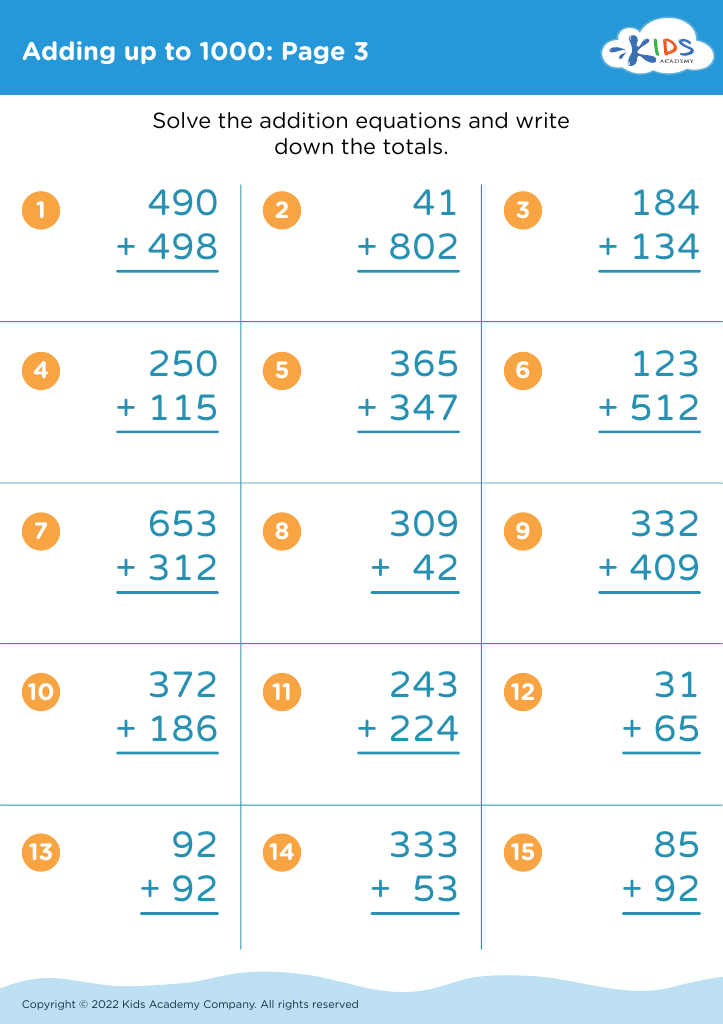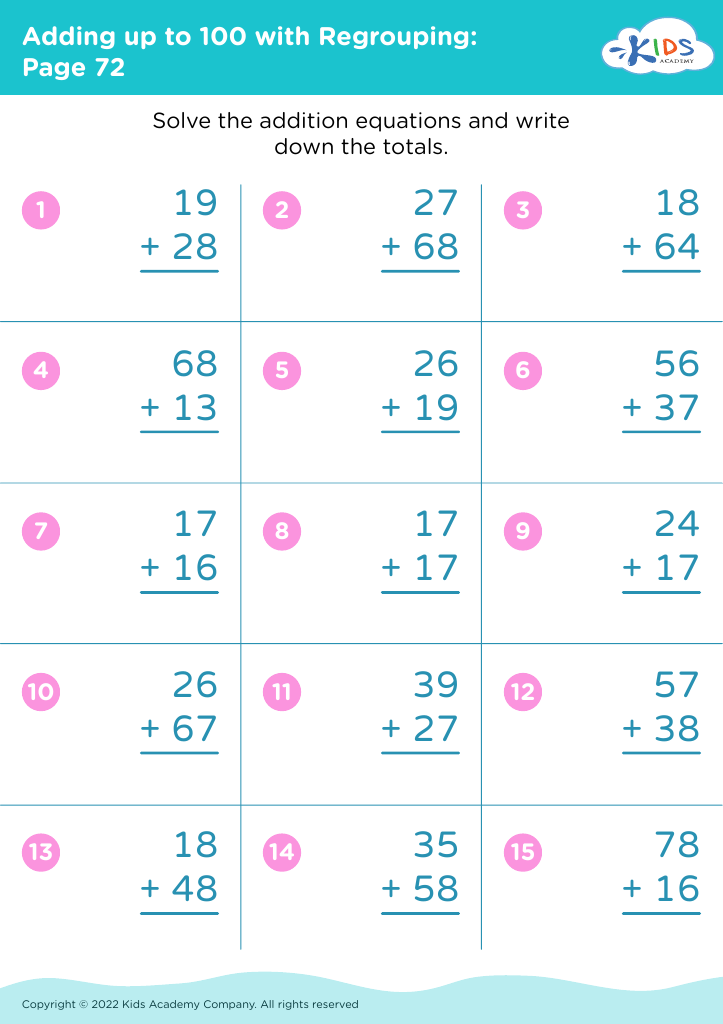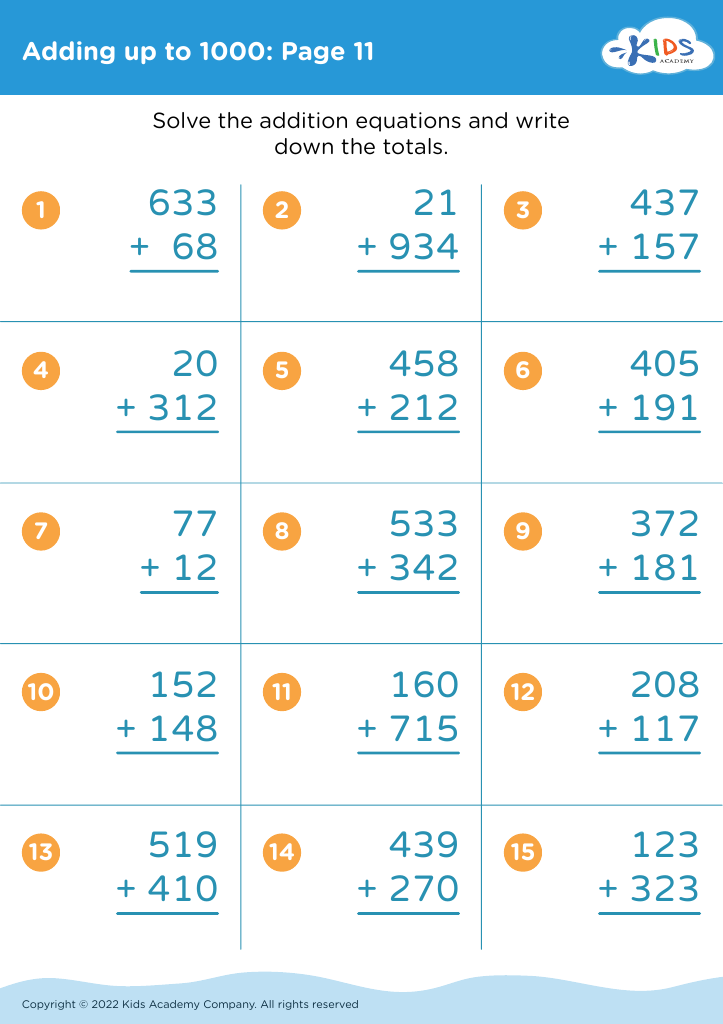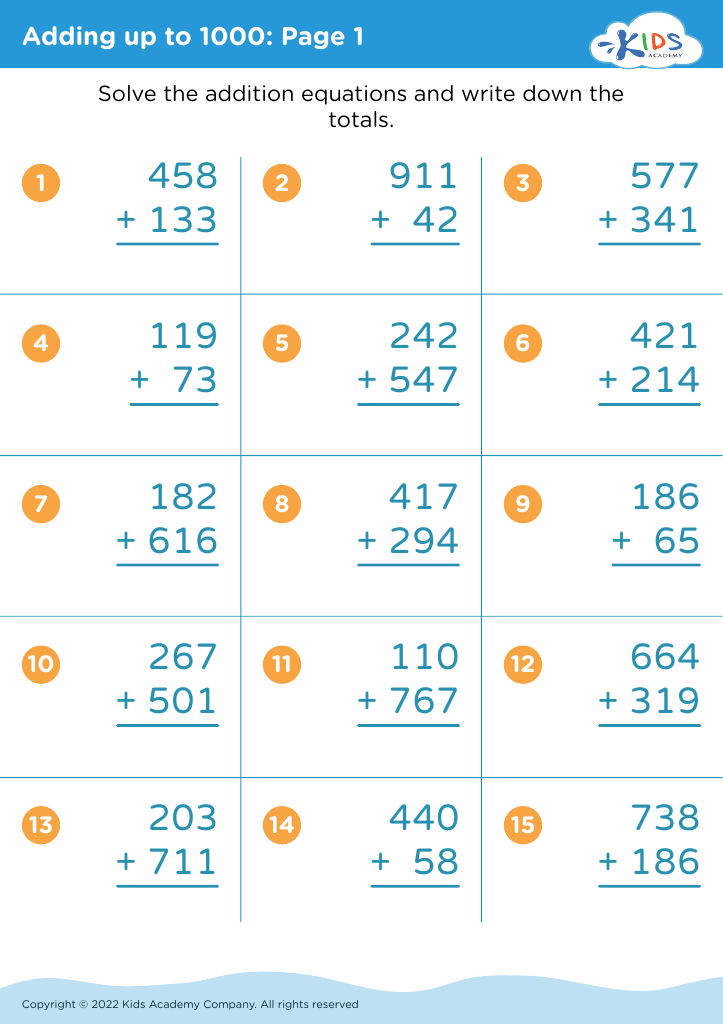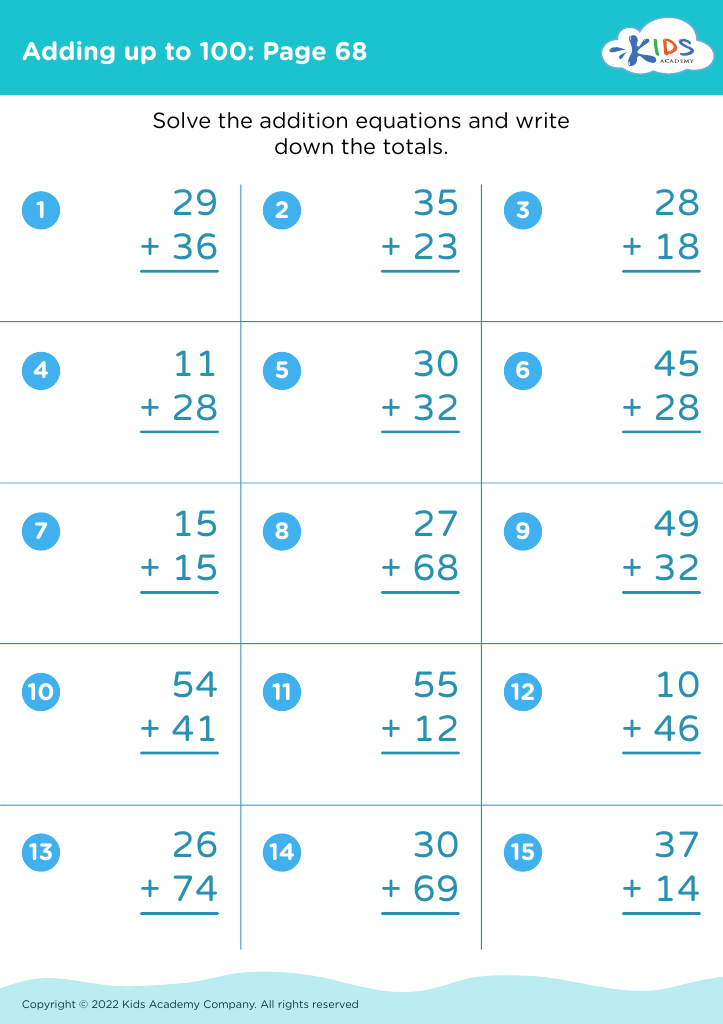Understand multiplication Addition & Subtraction Worksheets for Ages 3-8
6 filtered results
-
From - To
Welcome to our engaging "Understand Multiplication, Addition & Subtraction Worksheets" designed specifically for children aged 3-8! Our carefully curated resources aim to build a strong foundation in math through interactive and fun activities. These worksheets help young learners master essential skills, from basic addition and subtraction to an introduction to multiplication concepts. Each worksheet is crafted to encourage critical thinking and problem-solving, making math enjoyable and accessible. Parents and educators can easily download and print the worksheets, ensuring kids receive hands-on practice that enhances their understanding of mathematical operations. Start your child's math journey today with our delightful resources!
Understanding multiplication, addition, and subtraction is crucial for children aged 3-8, as it lays the foundation for their future mathematical skills. Early mathematical competencies are linked to enhanced problem-solving abilities and critical thinking. For parents and teachers, it's important to recognize that these early skills can significantly influence a child’s confidence in mathematics throughout their education.
At this age, children are naturally curious and eager to explore numbers, so engagement through playful activities can reinforce these concepts in an enjoyable way. For instance, using everyday situations, such as counting fruits or sharing toys, makes learning relatable.
Additionally, a strong grasp of basic arithmetic helps children realize patterns and relationships within math, setting a stage for more complex concepts like multiplication in later grades. This early focus not only aids in cognitive development but also supports practical life skills, such as financial literacy.
Moreover, fostering a positive attitude toward math early on reduces the likelihood of math anxiety later in life, enabling students to approach challenges with confidence. By investing in this foundational understanding, parents and teachers equip children with essential tools that will aid them throughout their educational journey and beyond.


